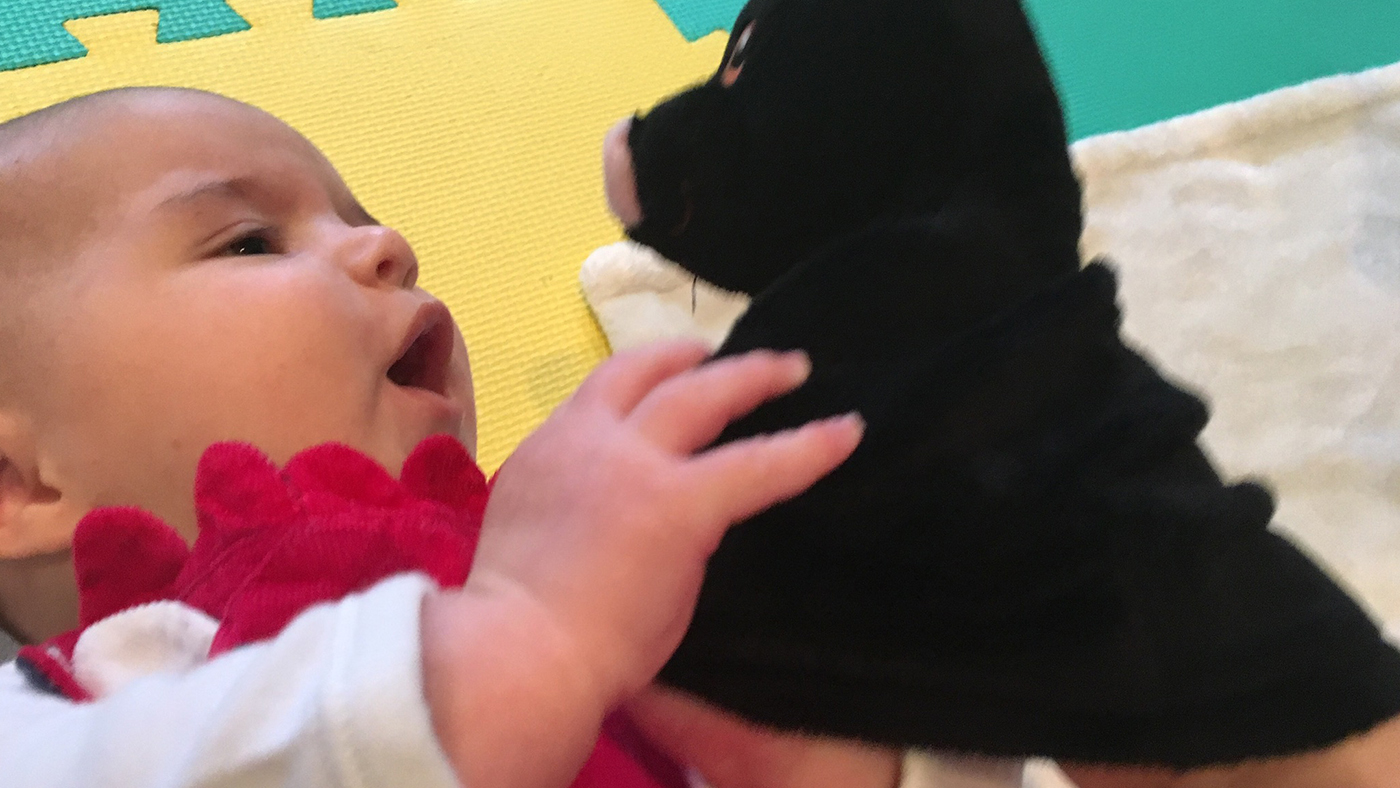How grasping supports lots of other development

Now that your baby's hands are open more often, they are also likely to be showing interest in toys and objects as their vision and physical skills develop. When you give them a toy, they will hold it in their hand, but they don't yet have the physical control needed to drop the toy when they want to, so they will probably just let go when they are tired.
Your baby's palmar grasp reflex and developing grasp
The palmar grasp reflex developed before your baby was born and you'll have seen it when they curl their fingers around an object or finger placed on their palm. The palmar grasp reflex gradually becomes integrated as your baby’s brain develops and they can control their movements.[1]
This ability to hold an object will help your baby to begin to explore objects by holding them and bringing objects to their mouth to explore them.
When your baby holds an object now their movements won't be controlled, but as they feel an object in their hand and notice what happens as they move it, they will begin to link their movement with what happens.
By grasping, your baby is mastering skills in other areas too
As your baby develops and learns, you'll find that different aspects of their development link together – mastering a skill in one stream will often support development in another!
Holding objects links to development in each of the other streams:
- Cognitive – holding an object helps your baby to explore what happens when they move it – it helps them to learn about the world. As their physical skills develop further, holding objects links to planning and thinking skills as your baby works out how to reach for an object, or what to do with something they are holding.
- Gross motor – gross motor development supports fine motor development; as your baby develops the ability to control and move their arms with more purpose they can reach for, hold and move objects.
- Social, emotional development – holding an object will, as your baby develops control, be a way to initiate interaction with others. Your baby will move objects to attract your attention or share an experience with you.
- Language – talking about objects that your baby is holding helps them to link words with objects.
- Sensory – holding and moving objects helps your baby to develop their sense of their body (proprioception), and supports them to feel similarities and differences between objects as they touch them with their hands and mouth to explore and learn more about them.
What's to come?
In the next few months, your baby will continue to develop control of their movements; they will be able to reach for and grasp objects, move the things that they are holding and bring objects to their mouths to explore.
Reference:
[1] Goddard-Blythe, S. (2004). The Well Balanced Child: Movement and Early Learning. Stroud: Hawthorn Press.